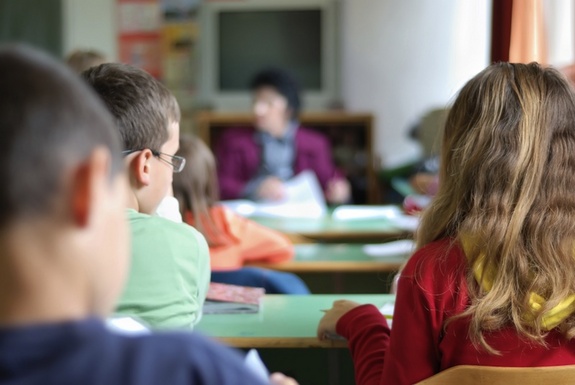For Kids' Academic Success, Parents May Trump Schools

Good schools make a difference, but parent involvement better predicts a child's academic performance than the qualities of the school he or she attends, a new study suggests.
"Our study shows that parents need to be aware of how important they are, and invest time in their children — checking homework, attending school events and letting kids know school is important," study researcher Toby Parcel of North Carolina State University said in a statement. "That's where the payoff is."
Parcel and her colleagues evaluated data from a national study of 10,585 students, along with information about their parents, teachers and school administrators. The researchers focused on how the students' "family social capital" and "school social capital" affected their academic achievement.
Family social capital measures a parent's involvement in a child's school life and the trust and communication between the parent and child, the researchers said. School social capital, meanwhile, measures the effectiveness of a school as a learning environment through teachers' morale and ability to address the needs of individual students, as well as student participation in extracurricular activities, the researchers said.
Students with high family social capital and low school social capital generally had better grades than students with high school social capital but low family social capital, the researchers found.
"In other words, while both school and family involvement are important, the role of family involvement is stronger when it comes to academic success," Parcel said in a statement.
This held true even when the researchers tested whether race, socioeconomic status, maternal marital status and family size had any indirect effects that might influence the relationship between family social capital and academic achievement. However, the researchers did not analyze the roles of financial capital and human capital at home and at schools, which, they acknowledged was a limitation of their study. [History's Top 12 Doting Dads]
Get the world’s most fascinating discoveries delivered straight to your inbox.
"If we were to find, for example, that parental financial capital (e.g., parental earnings) were more important than financial capital at school (e.g., per pupil expenditures), and that parental human capital (e.g., parental education) were more important than schools' human capital (e.g., teacher qualifications), these findings would provide additional evidence regarding the relative importance of families and schools in reproducing inequality," the authors wrote in their paper in the journal Research in Social Stratification and Mobility. "Most likely, however, the story is much more complex."
Nonetheless, their research could inform debates about how to improve academic achievement, and it suggests that investing in family social capital might have greater benefits than investing in school social capital.
"One possibility is expansion of supportive workplace policies, such as flextime, that would allow parents to attend school meetings and participate in extracurricular activities with their children without adversely affecting their jobs," the researchers wrote.
Follow LiveScience on Twitter @livescience. We're also on Facebook & Google+.



